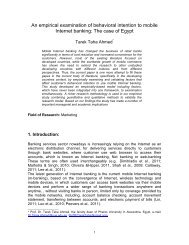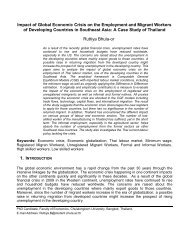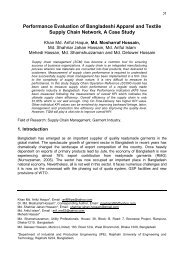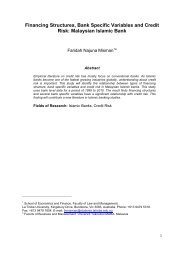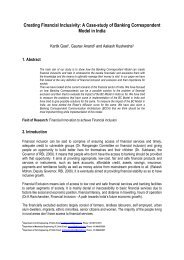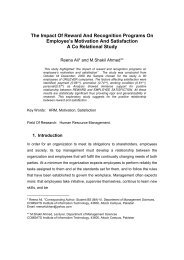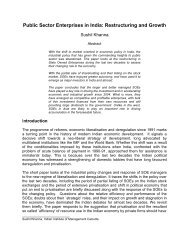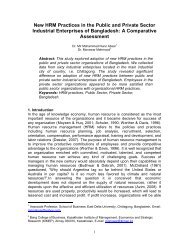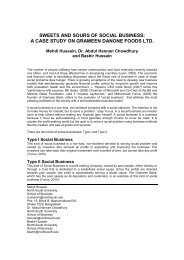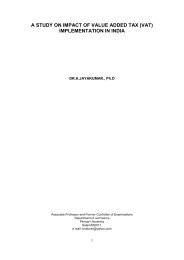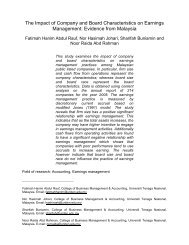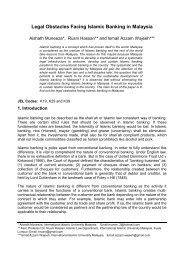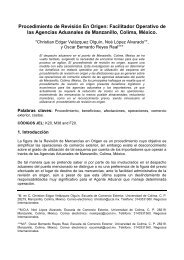Leadership Wisdom: Lessons from Sikhism
Leadership Wisdom: Lessons from Sikhism
Leadership Wisdom: Lessons from Sikhism
You also want an ePaper? Increase the reach of your titles
YUMPU automatically turns print PDFs into web optimized ePapers that Google loves.
of the new age. It is an egalitarian religion which preaches a message of love, devotion,truthful living, liberty, equality, fraternity and remembrance (Simran) of God at all times.It is a universal faith with a message of peace and prosperity for the whole world. It is alife affirming faith with positive attitude and high spirits. It is heartfelt adoration, devotionand surrender to one God. It is a thoroughly modern and progressive religion whichevolved in India as a solution to the catastrophe that plagued Indian society in thefifteenth century.According to Joseph Davey Cunningham (1812-51), the first British historian ofthe Sikhs, “The credit goes to Guru Nanak that he introduced real reforms and laid thefoundation on which his successor, the tenth Sikh Master, Guru Gobind Singh created anew nation. Guru Nanak saved his followers <strong>from</strong> those shortcomings to which thedisciples of many other religions had been falling a prey to for centuries. He taught thepeople worship of God and purity of character. In this way, he started a new religionwhich was simple, independent, non-communal and free <strong>from</strong> rites and rituals (A Historyof the Sikhs).”Max Arthur Macauliffe, an eminent English scholar and historian in his famousbook “The Sikh Religion”, opines, “The Sikh religion differs as regards the authenticity ofits dogmas <strong>from</strong> most other great theological systems. Many of the great teachers theworld has known, have not left a line of their own composition, and we know what theytaught only through tradition or second-hand information. If Pythagoras wrote any of thetenets, his writings have not descended to us. We know the teachings of Socrates onlythrough the writings of Plato and Xenophon. Buddha has left no written memorials of histeaching. Kungfu-tze, known to Europeans as Confucius, left no documents in which hedetailed the principles of his moral and social systems. The founder of Christianity didnot reduce his doctrines to writing, and for them we are obliged to trust the Gospelsaccording to Matthew, Mark, Luke, and John. The Arabian Prophet did not himselfreduce to writing the chapters of the Quran. They were written or compiled by hisadherents and followers. But the compositions of the Sikh Gurus are preserved and weknow firsthand what they taught.”According to <strong>Sikhism</strong>, man's salvation lies not only in his faith, but also in hischaracter and his eagerness to do active good. "Life without virtue runs to waste," saysGuru Nanak. The Guru gives practical tips to achieve the goal. Every Sikh is expectedto replace lust, anger, greed, undue worldly attachment and pride with their virtuouscounterparts, self-control, forgiveness, contentment; love of God and humility beforedeciding to go to the next step of doing active good. It is like sweeping the floor. As arule; where the broom does not reach, the dust will not vanish off itself. "The new thingwill fill the vessel only if the existing one is wiped out," says the Guru.6. Scope and Methodology of the Study:The World Economic Forum, which is an active independent internationalorganisation committed to improving the state of the world by engaging business,political, academic and other leaders of society to shape global, regional and industryagendas, in its 2005 meet of various leaders <strong>from</strong> business, academia and governmentidentified and agreed upon six top priority guiding values (traits) to be inculcated among



